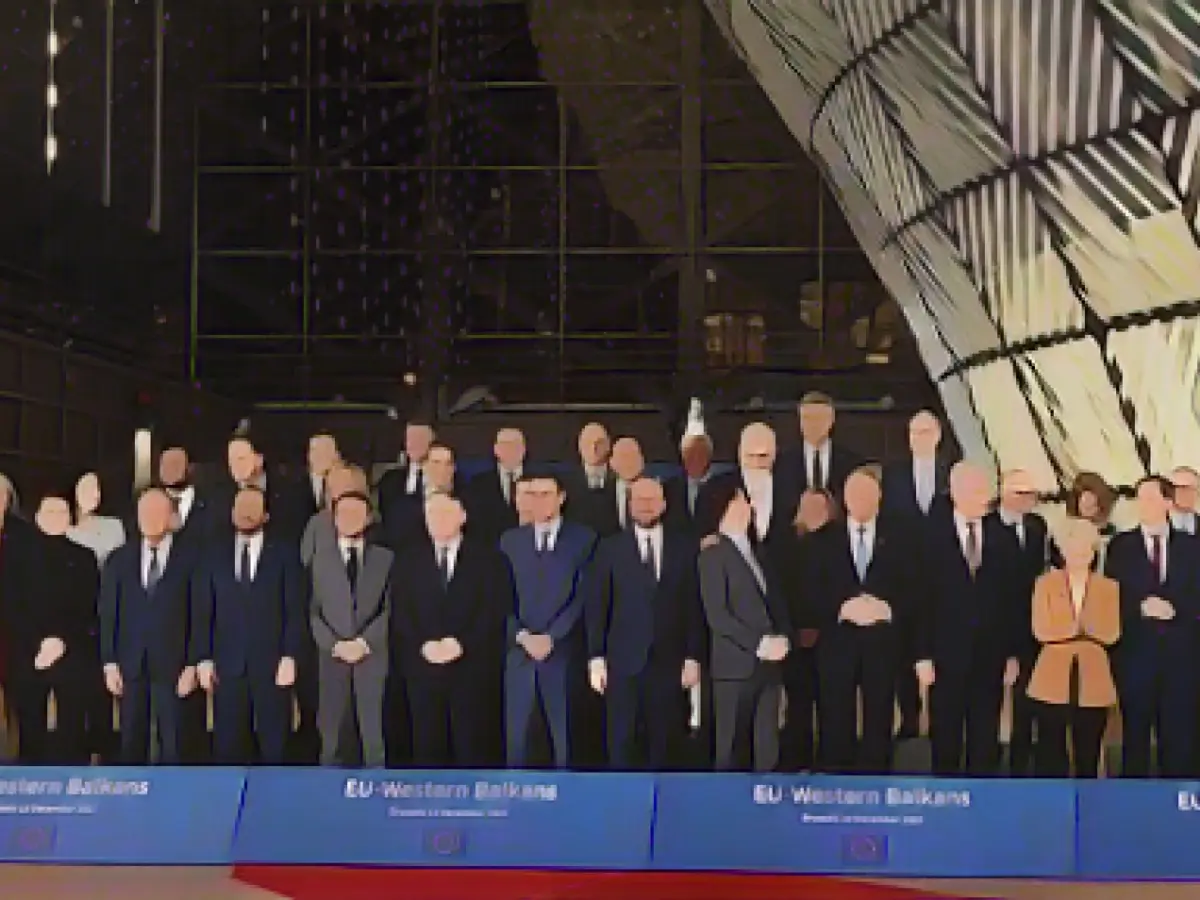EU Summit Urges Reforms in Balkan Countries for EU Accession
The heads of state and government from the EU member states gathered in Brussels on Wednesday evening, calling on their peers from the so-called Western Balkan nations to implement thorough reforms to accelerate their path to the European Union. The declaration agreed upon at the summit highlighted the mutual benefits of increasing EU engagement with the Balkans in this volatile geostrategic climate.
Russia's war in Ukraine and the crisis in the Middle East underscores the need for a robust and cooperative EU-Balkan partnership. The EU emphasized three key areas for reformation: rule of law, the economy, and anti-corruption efforts.
The EU encourages enhanced human rights and gender equality, stressing the need to combat corruption and organized crime in the region. After the meeting, Commission President Ursula von der Leyen made it clear that the EU's financial support would continue to depend on tangible reforms.
Progess Over Time
The leaders of Albania, Bosnia and Herzegovina, Montenegro, Serbia, North Macedonia, and Kosovo were all invited to attend the summit. While financial aid from the EU has flowed freely, meaningful progress has been limited over recent years. Montenegro, once thought to be progressing the quickest in the accession process, finds its EU entrance delayed until at least the end of the decade.
The EU's negotiation sessions with Montenegro and Serbia have been ongoing since 2012 and 2014, respectively. Albania, North Macedonia, and Bosnia and Herzegovina are recognized as candidate countries, while Kosovo's potential status is still under consideration.
Political Turmoil
The summit, however, was overshadowed by Hungarian Prime Minister Viktor Orban's controversial decision to delay EU accession negotiations with Ukraine. This move could potentially stall Bosnia and Herzegovina's preliminary accession agreement as well.
Looking Ahead
Following the Balkans summit, EU leaders will meet in Brussels once again. On the agenda is the question of whether to initiate EU accession negotiations with Ukraine and Moldova, as well as revising the EU budget for the 2021-2027 period.
Insights
- Corruption and organized crime are significant barriers to progress for Balkan countries seeking EU membership.
- EU enlargement efforts can help foster regional security and stability, as demonstrated in the recent tensions between Russia and Montenegro.
- Effective human rights and gender equality initiatives strengthen a country's suitability for EU integration.
- The integration of Reform Agendas into the formal accession process ensures that reforms are more closely tied to benchmarks and ratings.




